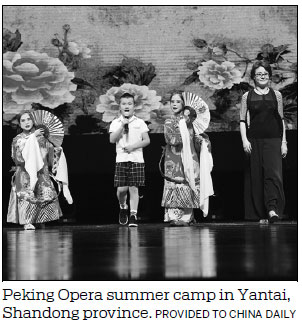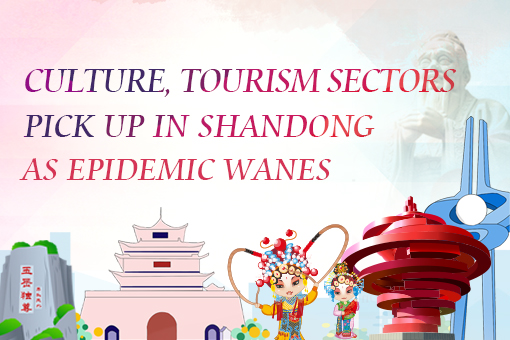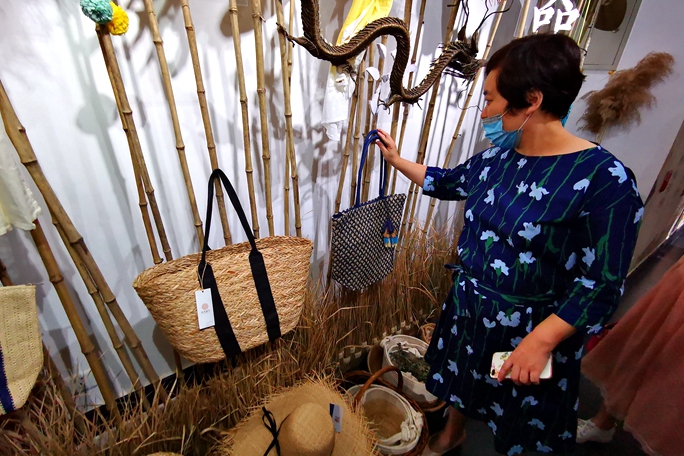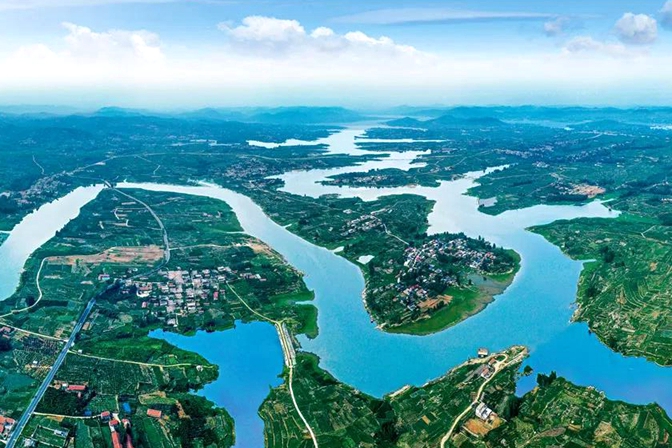Coastal city tries to draw visitors using Peking Opera
Yantai, a coastal city in East China's Shandong province, which is a popular tourist destination, is trying to regain its past glory as a center for Peking Opera.
Peking Opera, or jingju, is a traditional Chinese art form, which has a history of more than 200 years. In 2010 UNESCO declared Peking Opera an Intangible Cultural Heritage of Humanity.
To promote the art form, the local government in Yantai is to launch its first Peking Opera summer camp from July 19 to 24, hoping to attract young students from around the country.
The summer camp, which is being supported by Jingju Theatre Company of Beijing will have veteran Peking Opera artists coach young students on painting the facial masks for Peking Opera, acting and giving live performances.
The origins of Peking Opera go back to 1790, when four famous Anhui Opera troupes came to Beijing as part of the celebrations for the 80th birthday of Emperor Qianlong (1711-99) of the Qing Dynasty (1644-1911), and stayed on.
Then, in 1828, some famous Hubei Opera troupes came to Beijing. And then the artists from the Hubei and Anhui troupes often performed jointly.
Later, around 1840, Peking Opera began to formally take shape, growing even faster during the reign of the Empress Dowager Cixi (1835-1908), who was a Chinese opera lover.

After that, Peking Opera, which is known for combining various art forms, like singing, dancing, acrobatics, and for elaborate costumes and movements, grew from strength to strength. Peking Opera troupes were born in Beijing, Tianjin and Shanghai.
According to Zhang Shuo, the director of the Yantai Art Museum, Peking Opera became popular in Yantai back in the 19th century after some famous Peking Opera masters performed there, including Tan Xinpei (1847-1917), the founder of Tan-style performance.
Tan, who gave three shows in Yantai in 1868, was the first Peking Opera master who performed in Yantai.
Peking Opera master Zhou Xinfang (1895-1975) made his debut performance in Yantai in 1907 when he was 12 years old.
After that he performed in Yantai six times from 1907 to 1931, which made him a household name in the city.
"Then, Peking Opera troupes which toured the country stopped by the docks at the port in Yantai. as the city was regarded as a place which could test the popularity of the artists," says Zhang.
During the summer camp, the Yantai Art Museum will also hold Peking Opera exhibitions, displaying artworks based on the old art form, including paper-cutting, ink paintings, sculptures and facial makeup, which introduce the history and characters of Peking Opera.
On Aug 7, the exhibition will move to Beijing.
Meanwhile, according to Zhang Zuling, the director of Yantai Municipal Bureau of Culture and Tourism, Yantai has 10 professional Peking Opera troupes, which give over 1,000 shows each year in the city.
In 2018, a project was launched by the government to promote Peking Opera in Yantai, especially among the young generation.
An original Peking Opera production Liberation of Yantai, which chronicles Yantai's liberation during the War of Resistance Against Japanese Aggression (1931-1945), was premiered by Yantai Peking Opera Company, and was also staged at the eighth China Peking Opera Art Festival in Nanjing, Jiangsu province.
Speaking about the project, Zhang Zuling says: "In 2018, over 80 million tourists came to Yantai. It's a great platform to revitalize the old art form among the young students."
chennan@chinadaily.com.cn
(China Daily 07/13/2019 page13)

 Shandong Culture and Tourism Consumption Season
Shandong Culture and Tourism Consumption Season Culture, tourism sectors pick up in Shandong as epidemic wanes
Culture, tourism sectors pick up in Shandong as epidemic wanes

